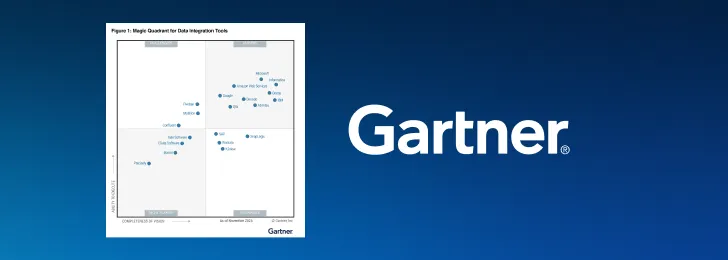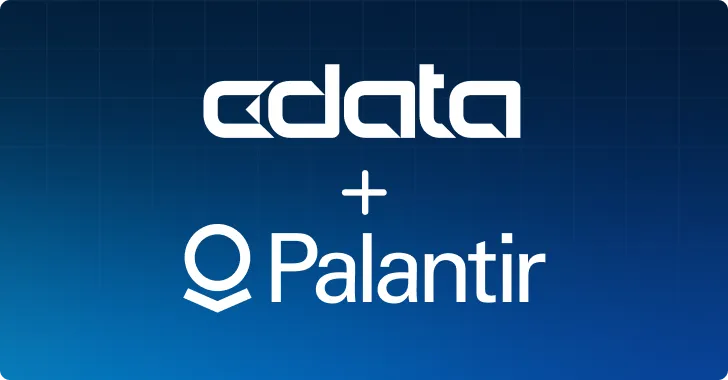
Generative AI (GenAI) isn’t just another emerging technology—it’s the driving force behind the future of enterprise data strategies. That was clear at the Gartner Data & Analytics Summit 2025, where every session with “AI” in the title was packed wall-to-wall. But for all the excitement, one reality stood out: Organizations can’t just adopt GenAI. They need to prepare for it.
So, what does GenAI readiness really look like? Conversations at the summit pointed to four critical areas where enterprises must focus their efforts.
1. Enterprise AI starts with enterprise data
Want GenAI to deliver real business value? It needs access to the right data—at the right time. Unfortunately, many organizations still struggle with siloed, fragmented data environments that make it nearly impossible to fuel AI models effectively.
Gartner analysts put it simply: "If your data isn’t ready, your AI won’t be business-ready." That means enterprises must:
- Break down internal data silos to ensure AI models have full access to relevant datasets
- Enable real-time or near-real-time data integration for AI-driven applications
- Ensure AI systems can process both structured and unstructured data sources
Without these foundational improvements, AI-driven insights risk being incomplete, biased, or outright inaccurate.
2. AI governance is evolving. Your approach should evolve, too
GenAI isn’t just changing how we use data—it’s changing how we need to manage it. Traditional data governance frameworks, designed for analytics and compliance, aren’t enough to keep up with AI’s dynamic, learning-based models.
At the summit, one key takeaway was clear: AI-ready governance must go beyond rules and restrictions. Enterprises need governance models that can adapt, ensuring AI models are accurate, explainable, and aligned with business objectives. That means:
- Strengthening data quality controls to prevent AI hallucinations and misinformation
- Implementing explainability and auditability to track AI-driven decisions
- Proactively monitoring for bias and compliance risks in AI outputs
Gartner predicts that by 2027, 60% of enterprises will fail to realize the expected value of their AI initiatives due to inadequate governance. The message? AI governance isn’t a back-end consideration—it’s a front-and-center business priority.
3. Open, composable data platforms are the future
AI isn’t a one-size-fits-all solution, and neither is the data infrastructure that supports it. A recurring theme at the summit was the shift toward open, composable data platforms—flexible architectures that allow organizations to integrate the best AI and data tools for their needs without vendor lock-in.
Composable platforms enable:
- Seamless AI integration across multi-cloud and on-premises environments
- The ability to mix and match AI models, databases, and analytics tools
- More agile AI deployments that can scale alongside business needs
As AI adoption accelerates, rigid, monolithic data architectures will only slow enterprises down. Organizations that embrace modular, open platforms will be far better positioned to adapt to rapid AI advancements.
4. AI is changing the skills data teams need
GenAI isn’t just transforming business processes—it’s reshaping who manages data and how they work. At the summit, data leaders emphasized the growing need for AI literacy across both technical and business teams.
To build AI-ready organizations, companies must:
- Train business leaders to interpret AI-generated insights effectively
- Upskill data teams to manage AI-driven workflows and automation
- Establish new roles, such as AI governance leads and data ethics officers
Without the right skills in place, even the best AI models can fail to deliver meaningful business outcomes. Enterprises that invest in AI education today will have a major advantage as the technology matures.
Final thoughts
GenAI is here, and enterprises are eager to capitalize on its potential. But as the Gartner Data & Analytics Summit 2025 made clear, success in the AI era isn’t about simply adopting the latest models—it’s about building the right foundation. Organizations that modernize data access, evolve governance strategies, embrace open platforms, and invest in AI skills will be the ones turning AI hype into measurable business impact.
Is your data strategy ready for the AI-driven future?
Watch Foundations on demand
Learn how a modern data connectivity strategy is built on a solid foundation of security, flexibility, and adaptability. Watch leading experts as they share their insights, strategies, and forward-thinking ideas to tackle modern data challenges.





